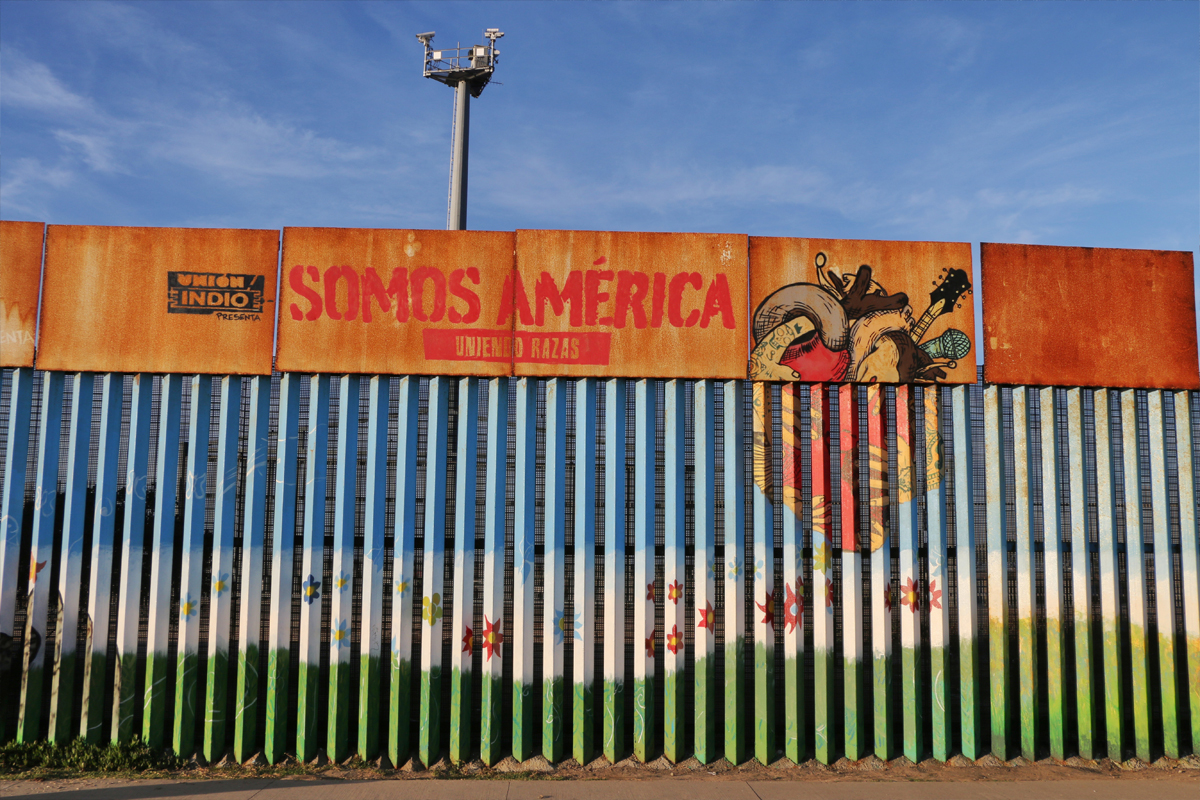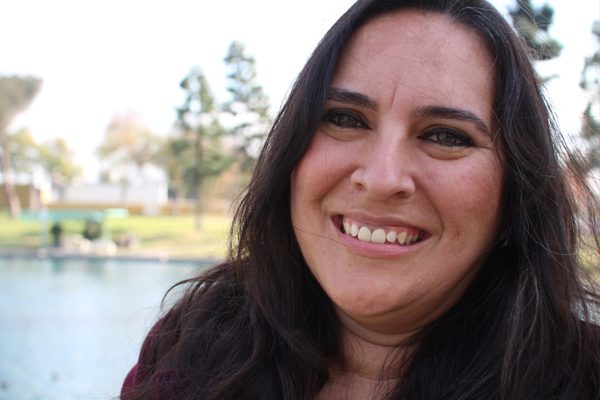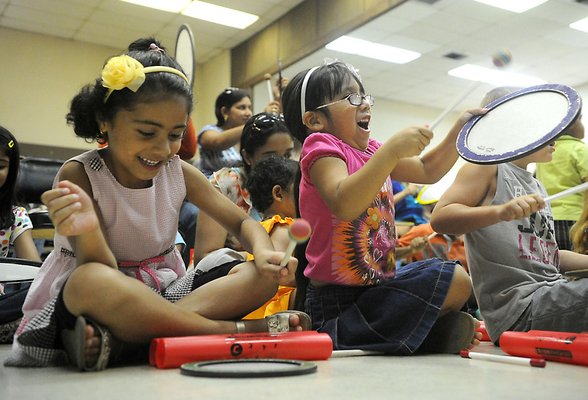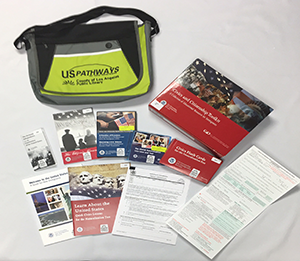Pórtate Bien

The acceptance letters arrived from five California universities.
My mother beamed but I dared not share the news with my father.
“You have big dreams,” he would say. “It’s not good to dream big because the disappointment in not achieving those aspirations is going to get the best of you. And what good does a college degree bring to a woman? You will marry – fill your house with children and then what? No college degree needed for that.”
I signed my acceptance letter with my mother’s blessing. I left for college without my father’s consent.
It was Move-In Day, one week before the Fall Quarter commenced. My mother borrowed the neighbor’s Mustang and drove me to the University of California at Riverside. Freshman and returning students unloaded their belongings at the horseshoe-curb in front of the Aberdeen-Inverness Dormitories. Students were accompanied by their families – setting up their rooms, meeting their roommates, touring the campus, buying textbooks and UCR apparel.
My mother had scrounged money to purchase the basics for living in a dorm and getting me through until my scholarship and financial aid came in– a robe, a desk-lamp, an electric typewriter and two full flat sheets.
All of the designated visitor spots were taken so my mother parked on a side street in a red zone, as my 14-year-old sister and I carried my possessions to the all-female dorm. The last thing she needed was a parking infraction and she wanted to make good on her word to Esther, the neighbor, that she would return the car within three hours. My mother came up to my room, met my roommate from Palm Springs, blessed me with the sign of the cross from my forehead to chin, ear to ear and a kiss on the cheek and whispered in my ear, “Pórtate bien,” and they left.
That morning, my father had gone to work without a word.
He was born in 1940 to Dolores González and Salvador Castañeda – the fifth of twelve children, raised in a conservative Catholic home in the small town of Tlaltenango in the north-Central Mexican state of Zacatecas; the only one of his brothers to learn his father’s whitesmith trade. As a tin craftsman, he laid a galvanized tin plate on a steal anvil to flatten it and turn and roll the edges with a hammer; with a soldering iron and a fire pot, he soldered the pieces together to create or repair items of everyday use – milk churns, jugs and pails, liter measuring receptacles, molinillos, rain gutters, spinning tops and meticulous lamps from Mexico’s colonial period still in favor by the town folk. His brothers tended the cattle and took it for pasture in the near-by sierra. His sisters washed clothes in the neighboring river, milled the nixtamal for the tortillas, fetched water from the patio well and prepared the daily meals. As the first son, he was doted upon by his parents and his older sisters, who ensured that his clothes were clean and pressed; his meals prepared and served hot when he sat at the table.
As a teenager, he resented being obliged to wear leather huaraches and jean overalls as his father did. When his oldest sister married and migrated to California, she would send him yards of English cashmere so that the local tailor could fashion him a suit. His father did not approve of his choice of clothing, nor of his friends – the children of the “high class.” His friends had no religious principles, his father would say, and they were accustomed to playing out in the street like slackers with no idea of what it was like to work and contribute to a family’s subsistence.
At the family’s small general store where they sold the tin-ware crafted by him and his dad, my father and his siblings took turns managing the store. His father did not think it necessary to pay them for their work – it was their family duty. His sisters accused him of taking money from the store coffers; they searched his pockets and removed his shoes. They never found the cash he rolled into his sleeves. Years later, he claimed to have taken what he had earned – enough to go to the cinema, buy something to eat and hang out with his buddies in the Jardin.
During the Sunday sermons, the priest prohibited the town folk from viewing films he deemed sinful. My grandfather warned his children to stay away from the tainted movies. My father felt the priest aimed to control, requiring that his parents give ten percent of their harvest to the church and discouraging them from reading books except the Bible. As a boy, my father had been obligated by his father to serve as an acolyte. After the church services, he was required to serve the priests wine at the supper table laid with the prime cuts of meat and books his family was denied. One night, he went anyway to the movie house to see his favorite actress, Elsa Aguirre; halfway through the film, he felt a rap to the head, and a tight grip on his right forearm pulling him up from the chair. In the darkness, a stream of speckled light traveled from the projector to the screen. His father was impervious to the curses the audience shot his way. He jerked his son to the exit, gave him a beating when they arrived home, then made him kneel on pebbles and face the stone wall with arms extended while carrying a rock on each hand.
Although my father had a fifth grade education, he was fascinated by history. He listened to the older folks who gathered in the town square to talk politics and history.
In 1959, at age 19, much to his parents’ dismay, he made the trek to El Norte alone. The Bracero Program contracted him to work in the tomato fields in Petaluma, California. He left when the contracted company did not pay him what they had guaranteed. He slated the foreman about the exploitation of the field hand. In Livingston, he found work with another farmer who paid him fairly. Yet fieldwork was not why he had left Tlaltenango. He traded the fields for restaurants in San Francisco and Santa Rosa where he bussed tables and washed dishes.
By 1967, he was living in Los Angeles with his two younger brothers. Two years after, he married my mother and I was born. He worked the night shift at a high-technology circuit board manufacturing plant in Culver City. It was a union job that paid triple the minimum wage and provided health benefits for the family. My mother stayed home tending to their growing family. We lived in Boyle Heights at Wyvernwood – a garden apartment complex constructed in the late 1930s for middle income workers.
Always, though, returning home was his dream. When his father died, he inherited a plot of land across the street from his family home. On the parcel, he built an American-style, two-story house. He longed to live in it permanently one day and consume himself in his tin craft.
Growing up, I didn’t own many books but I was never without a story. My father was a natural storyteller – a master of exaggeration. As I listened to his stories, I was entranced like a child is, as the magician pulls the rainbow colored scarves from the black top hat. The family stories and the history he enlivened were the core of my pop’s soul. In my teenage years, my interest waned. No longer did I want to hear that the Mexican General Santa Anna was a traitor to México and that the Southwest was stolen by President Polk by provoking Mexicans into war when he moved U.S. troops to the Río Bravo. His knowledge was neither supported by my high school textbooks or my teachers. How could a man with a 5th-grade education be right about history? How could the teachers be wrong?
“Lies – that’s what your teachers are feeding you. Utter lies,” my father would say.
UCR was far enough to get away from home and close enough to return. Its location made housing affordable with the limited income earned by my work-study job, student loans, state grants and privately funded scholarship. Initially, I returned on weekends, catching a ride with fellow students. My father worked the night shift and occasionally the graveyard shift so I never saw him when I arrived on Fridays. On Saturday, we hardly uttered a word to each other – I spent the day studying and he spent the day viewing black-and-white Pedro Infante films or swaying his body side to side as the boxers on the TV screen attempted to land their punches – fascinations that he once enjoyed with me by his side. Sunday came – I returned to UCR. Soon, I wasn’t going home as often. I phoned and wrote letters, instead. The days I didn’t call, my mother would phone me and if she missed me she would leave a recorded message.
“Pórtate bien.”
As a freshman, I enrolled in a Chicano History course as suggested by my advisor. I was short a class and this one fit into my schedule. It was the first time I had heard the term Chicano used interchangeably with Mexican-American. The lectures and literature tapped into facts that I had disengaged from – facts that my father defended. As I continued taking courses in Chicano Studies a connection to my father’s life story awakened.
In my letters and my phone conversations I shared my experiences and my learning with them. My father’s eyes glistened and he would nod in agreement, my sister said, when he listened to her read the letters aloud or overhear the telephone conversation I had with my mom.
The few times I went home on the weekends, his story was our connection. He would ask me to tell him more about the East L.A. Blowouts, the Bath Riots and the mass deportations of Mexican-Americans in the 1930s. He was attentive to what I was book-learning; smirking as if I was validating all he knew to be true.
At the bookstore, while in line to pay for my books, one day, I contemplated a blue sweatshirt that sported UC Riverside Dad in yellow letters across the chest.
Graduation day came in June 1991. The night before the commencement ceremony, my family arrived accompanied by my godparents, and their children. The floor of my studio apartment was their shelter for the night. My father had invited them to witness as I walked across the stage to become the first college graduate of the family.
A year before I graduated from UCR, the company my father worked for closed. He became unemployed. The job prospects were anemic. The rejections were demoralizing. Yet, he continued on his feet; driving nightly through the alleys collecting cardboard boxes from the factory trash bins, in his brown Ford truck. By day, he sold the cardboard by the ton at the local recycling center. Yet he now rejected the thought of me quitting school to help the family financially.
Years later, my aunts told me of his pride when he spoke of my audacity to contravene the life he’d expected me to live. At the moment of my decision to obtain a college education, he had thought, I would grow distant and squander the sacrifices he had made for himself and for his family.
But during my senior year, on an occasional Friday night, he would pick me up from school wearing his UCR Dad sweatshirt, and he would take me home.

March 5, 2016










